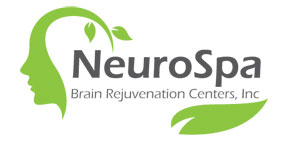Neurological consultation and evaluation
The basic foundation of diagnosing and treating all medical conditions is a comprehensive history and neurological examination. Thorough history taking and a full neurological exam is especially important in understanding neurological disorders. Neurological exams are done by board-certified neurologists and include evaluation of mental status, attention and memory, language and speech, cranial nerve 1-12, neuromuscular exam, deep tendon reflexes, sensory exam, gait, and coordination. Neurological consultations at NEUROSPA usually last between 1-3 hours of face-to-face evaluation.
In addition, communicating our thoughts and discussing the reasoning behind the work-up and recommendations as best and as simply as possible to the patient is paramount at NEUROSPA. Our goal is to dispel any myths and use the latest scientifically proven facts to accurately diagnose, treat, and therefore reduce anxiety to the suffering patients who come for help at our office. Moreover, alternative and non-pharmacologic (I.E. no medicine) therapies and approaches are heavily considered to help reduce use of potentially harmful tests, procedures, and medicines.
Electroencephalography (EEG)
Using surface scalp electrodes, the electric brain waves are recorded. This test is essential in detecting abnormal brain electric activity such as seizures, epilepsy, dementia, focal slowing of brain activity…etc. This test in painless and non-invasive. At NEUROSPA we have access to advanced, digital, wireless, and gel-less EEG caps which make EEG experience more precise, faster, and more comfortable.
Ambulatory Video-EEG Testing
Do you ever experience vague, non-specific intermittent symptoms, fainting, twitching, seizures, dizziness, shaking or other symptoms and related occurrences? Are you having difficulty with diagnosis and ultimately unsure how to manage?
Neurospa Brain Rejuvenation Center offers Ambulatory video-EEG Testing.
What is a Video Ambulatory EEG?
Video Ambulatory EEG monitoring is an EEG (and simple EKG) with simultaneous time-locked video, which monitors physical and/or subjective symptoms such as shaking, fainting, twitching, dizziness, tingling, seizures or other non-specific spells. The video camera recording of physical symptoms can give further insight in conjunction with the brain activity captured by the EEG. Our experienced neurologists can then use the video and EEG information to help determine if there is a correlation between the symptoms in question and brain and/or cardiac activity.
Why is Video Ambulatory EEG a better choice than the standard EEG?
- Continuous Recording for up to 96 hours
- Captures physical symptoms in addition to the EEG data
- Convenience for your patient—no long, inpatient hospital stays for monitoring
- Event Button allows patient to digitally mark an occurrence if/when experiences any symptoms
- Overnight Monitoring
- Uses Combined Data
- Cost Savings
- Fast results
- Flexibility
Electromyography/Nerve Conduction Study (EMG/NCS)
This test can greatly enhance nerve conduction studies by studying individual muscle groups. The test involves insertion of thin, acupuncture-like needles superficially into selected muscles to visualize muscle patterns that reflect the state of the nerve and/or muscle and lead to accurate diagnosis. Many disorders of neck and low back pain can be evaluated with this technique. This test is slightly uncomfortable but usually tolerable.
Many peripheral disorders of nerves can be detected by passing small amount of electric current through individual nerves and recording the signal generated. This test is generally painless and extremely useful in the diagnosis of nerve disease.
MRI/MRA Interpretation
MRI images of the brain and spinal cord are essential in the diagnosis of neurological disease. Our experienced neurologist(s) provides expert interpretation of MRI imaging and relates the findings to individual’s signs and symptoms to aid in diagnosis and treatment planning. MRI/MRA interpretation is included in the comprehensive neurological consultations.
Neuropsychological Testing
Neuropsychological testing is a comprehensive assessment of how one’s brain functions, which can provide valuable information as adjunct to medical examinations. Neuropsychological evaluations provide insight into the psychological and central nervous system (CNS) functioning, such information can lead to localization of organic abnormalities, clarification and/or confirmation of a diagnosis, and insight into strengths and weaknesses of cognitive ability. Findings from these assessments also help in understanding disease process over time and guide effective treatment recommendations for rehabilitation when there is impairment.
Trigger point injections
This therapy involves pinpoint injections of nerve blocks and/or corticosteroids into areas of inflammation or nerve impingement that cause shooting pain such as seen in occipital neuralgia.

